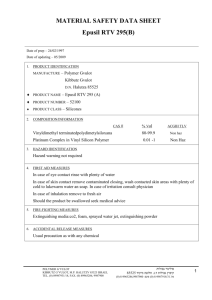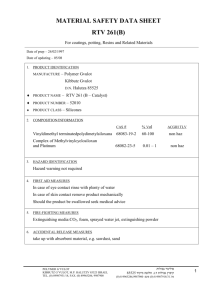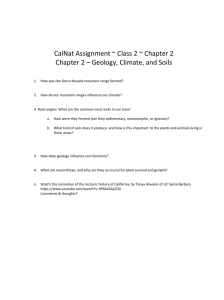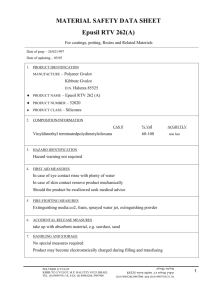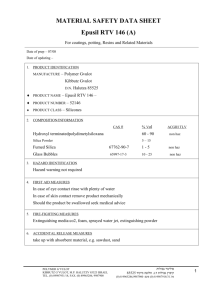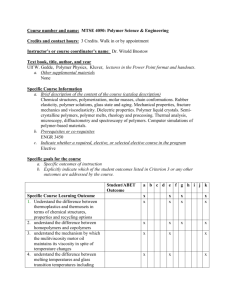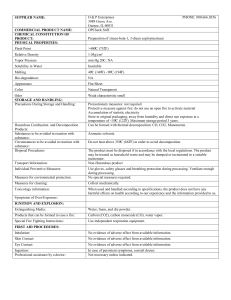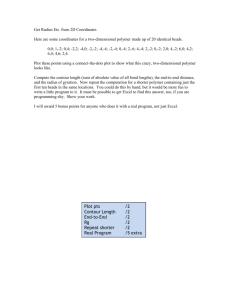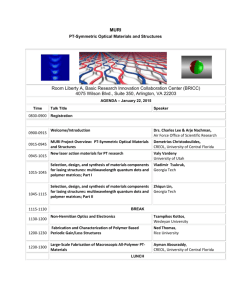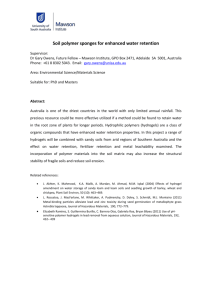tsi1- decomposition of p4 - Agricultural Polymers International Ltd
advertisement
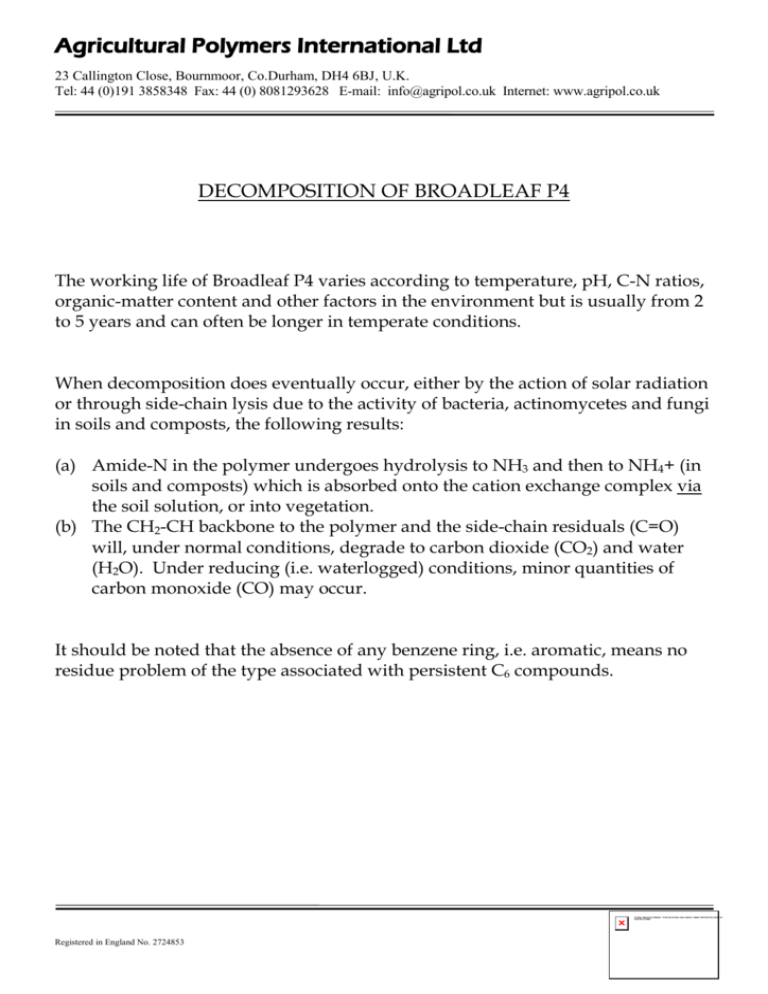
Agricultural Polymers International Ltd 23 Callington Close, Bournmoor, Co.Durham, DH4 6BJ, U.K. Tel: 44 (0)191 3858348 Fax: 44 (0) 8081293628 E-mail: info@agripol.co.uk Internet: www.agripol.co.uk DECOMPOSITION OF BROADLEAF P4 The working life of Broadleaf P4 varies according to temperature, pH, C-N ratios, organic-matter content and other factors in the environment but is usually from 2 to 5 years and can often be longer in temperate conditions. When decomposition does eventually occur, either by the action of solar radiation or through side-chain lysis due to the activity of bacteria, actinomycetes and fungi in soils and composts, the following results: (a) Amide-N in the polymer undergoes hydrolysis to NH3 and then to NH4+ (in soils and composts) which is absorbed onto the cation exchange complex via the soil solution, or into vegetation. (b) The CH2-CH backbone to the polymer and the side-chain residuals (C=O) will, under normal conditions, degrade to carbon dioxide (CO2) and water (H2O). Under reducing (i.e. waterlogged) conditions, minor quantities of carbon monoxide (CO) may occur. It should be noted that the absence of any benzene ring, i.e. aromatic, means no residue problem of the type associated with persistent C6 compounds. Registered in England No. 2724853
